
-
 SFWJ / Medcana Announces Strategic Expansion Into Australia With Acquisition of Cannabis Import and Distribution Licenses
SFWJ / Medcana Announces Strategic Expansion Into Australia With Acquisition of Cannabis Import and Distribution Licenses
-
Man Utd stun Lyon in nine-goal Europa League classic to reach semis

-
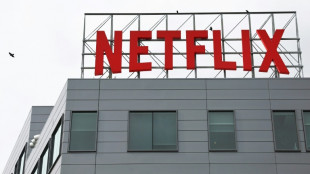 Netflix earnings in first quarter of 2025 top forecasts
Netflix earnings in first quarter of 2025 top forecasts
-
Trump says US 'talking' to China on tariffs

-
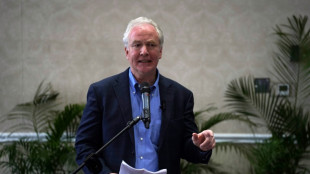 Salvadoran soldiers stop US senator near prison holding expelled migrant
Salvadoran soldiers stop US senator near prison holding expelled migrant
-
Solanke penalty sends Spurs to Europa League semis

-
 CAF crackdown after trouble in African club matches
CAF crackdown after trouble in African club matches
-
Trump talks up EU tariff deal as Italy's Meloni visits
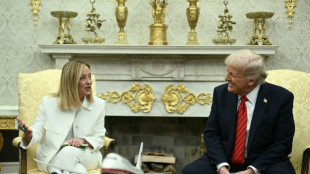
-
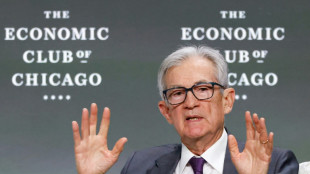 Trump insists he could fire independent Fed Chair Powell
Trump insists he could fire independent Fed Chair Powell
-
Google has illegal monopoly in ad tech, US judge rules
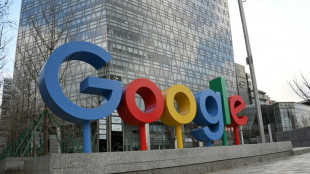
-
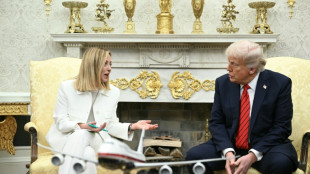 Trump softens on Zelensky, says mineral deal coming 'soon'
Trump softens on Zelensky, says mineral deal coming 'soon'
-
Jacks helps Mumbai beat Hyderabad in IPL

-
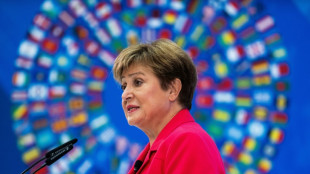 Countries must 'make the best' of new multipolar world: IMF chief
Countries must 'make the best' of new multipolar world: IMF chief
-
Heavy spring snow storm wreaks havoc in the Alps

-
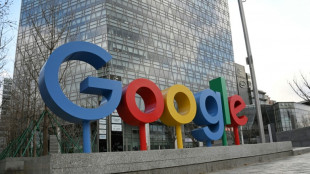 US judge rules against Google in online ad tech antitrust case
US judge rules against Google in online ad tech antitrust case
-
Andreeva knocked out by Alexandrova in Stuttgart last 16

-
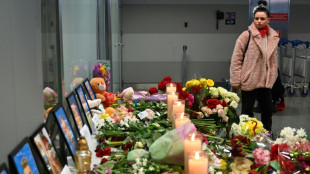 Iran challenges four countries in UN court over jet it downed in 2020
Iran challenges four countries in UN court over jet it downed in 2020
-
'Not at 50' - Alonso sets retirement limit

-
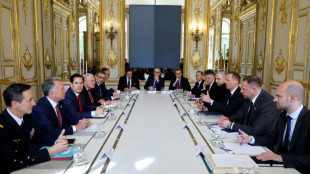 Macron praises US-European-Ukraine talks as 'important occasion for convergence'
Macron praises US-European-Ukraine talks as 'important occasion for convergence'
-
Verstappen dismisses Red Bull exit fears

-
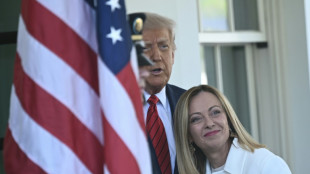 Italy's Meloni, Trump talk up EU trade deal hopes
Italy's Meloni, Trump talk up EU trade deal hopes
-
'Slow but steady' progress for Martin after Qatar MotoGP crash

-
 Pogacar-Van der Poel duel inspires Evenepoel comeback
Pogacar-Van der Poel duel inspires Evenepoel comeback
-
US judge rules Google monopolized online ad tech market
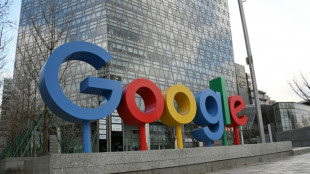
-
 Bearman back at 'special' debut-track Jeddah
Bearman back at 'special' debut-track Jeddah
-
Swiss watch exports to US soared ahead of Trump tariffs

-
 Alcaraz finds best to reach Barcelona Open quarters
Alcaraz finds best to reach Barcelona Open quarters
-
Where are all the aliens?: Fermi's Paradox explained

-
 France full-back Dulin to retire at end of season
France full-back Dulin to retire at end of season
-
World economy likely to avoid recession despite tariffs: IMF chief
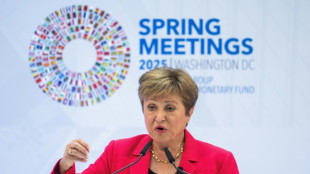
-
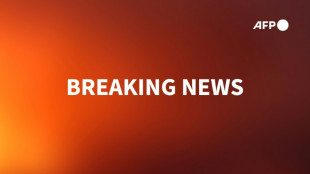 57 killed in Sudan's Darfur as trapped civilians fear bloodbath
57 killed in Sudan's Darfur as trapped civilians fear bloodbath
-
Vietnam ups wind, solar targets as energy demand soars

-
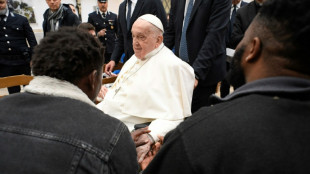 Pope says doing 'best he can' on jail visit before Easter
Pope says doing 'best he can' on jail visit before Easter
-
China's Xi meets Cambodian leader as part of regional diplomatic blitz
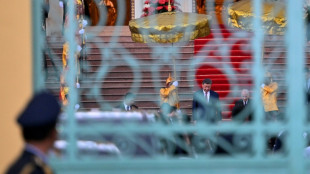
-
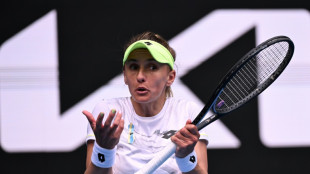 Ukrainian tennis player seeks legal justice over 'moral abuse'
Ukrainian tennis player seeks legal justice over 'moral abuse'
-
Italy's Meloni seeks EU tariff deal from Trump
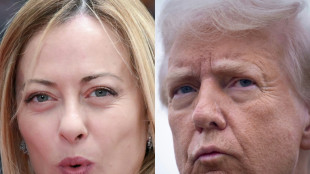
-
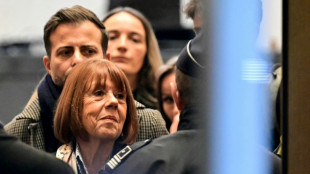 France's feminist icon Pelicot to sue Paris Match for privacy invasion
France's feminist icon Pelicot to sue Paris Match for privacy invasion
-
World economy should avoid recession despite tariffs, IMF chief says
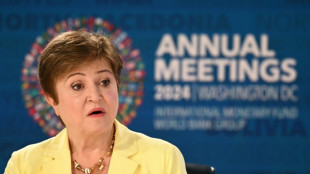
-
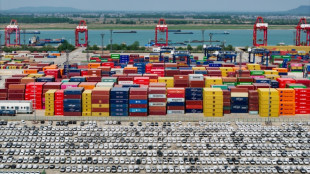 Stocks waver as ECB cuts rate, Trump slams Fed chief
Stocks waver as ECB cuts rate, Trump slams Fed chief
-
France, UK mull migrant swaps in bid to stem Channel crossings
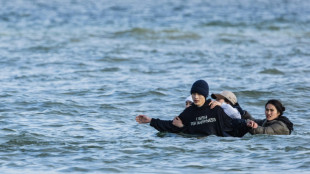
-
 Nuno says Forest still in control of Champions League chase
Nuno says Forest still in control of Champions League chase
-
Malinin, Liu help US take early lead at skating's World Team Trophy

-
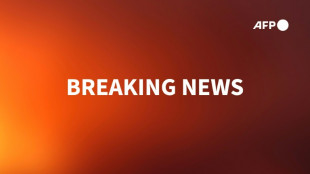 Clashes in Sudan's besieged Darfur city kill 57
Clashes in Sudan's besieged Darfur city kill 57
-
Kyiv's Europe allies seek influence with US in Paris talks
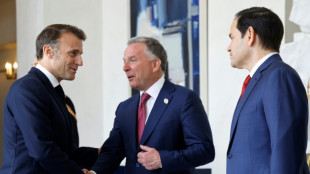
-
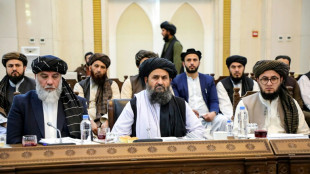 Russia scraps Taliban's 'terror' label amid warming ties
Russia scraps Taliban's 'terror' label amid warming ties
-
Trump says Fed chief's 'termination cannot come fast enough'
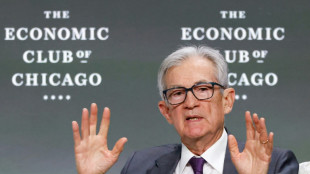
-
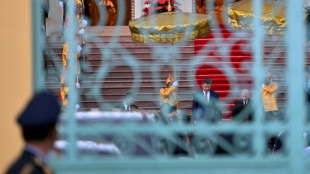 China's Xi, seeking to build regional ties, meets Cambodian leader
China's Xi, seeking to build regional ties, meets Cambodian leader
-
ECB cuts rates as Trump tariffs raise fears for eurozone growth
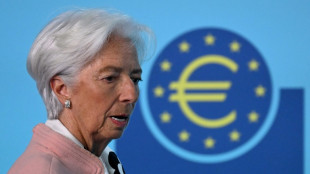
-
 Etzebeth returns to Sharks lineup after concussion absence
Etzebeth returns to Sharks lineup after concussion absence
-
Gaza rescuers say 40 mostly displaced people killed in Israeli strikes
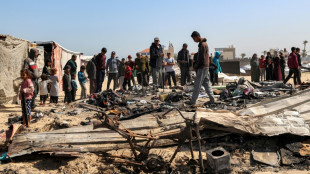

US or Russia? Ukraine crisis poses dilemma for wealthy Gulf
Choosing sides in Ukraine's crisis would have once been easy for Gulf states long protected by the US, but growing ties with Moscow are forcing them to strike a balance.
As the world rushed to condemn the Russian invasion of its smaller neighbour, the wealthy Gulf Cooperation Council (GCC) countries, including Saudi Arabia and the United Arab Emirates (UAE), have largely kept quiet.
Middle East experts say their reticence is understandable given what's at play -- energy, money and security.
"It is not only the economic ties that are growing, but also the security ties of these states with Moscow," said Anne Gadel, a Gulf expert and contributor to the French think-tank Institut Montaigne.
On Friday, the UAE abstained along with China and India from a vote at the US Security Council demanding Moscow withdraw its troops.
Russia as expected vetoed the resolution co-written by the US and Albania while 11 of the council's 15 members voted for it.
After the vote, Emirati state new agency WAM said the UAE and US foreign ministers spoke by phone to review "global developments". No mention was made of Ukraine.
Russia's foreign ministry meanwhile announced that the UAE and Russian foreign ministers would meet Monday in Moscow to discuss "further expanding multifaceted Russia-UAE relations".
Hours before Russia unleashed its massive ground, sea and air assault against Ukraine on Thursday, the UAE had "stressed the depth of friendship" with Moscow.
Gulf power house Saudi Arabia has not reacted to the invasion, like the UAE, Bahrain and Oman. Kuwait and Qatar have only denounced the violence, stopping short of criticising Moscow.
- 'Ideological ally' -
For more than seven decades, the United States has played a key role in the conflict-wracked Middle East, serving in particular as a defender of the oil-rich Gulf monarchies against potential threats such as Iran.
But in recent years, Washington began limiting its military engagements in the region, even as its closest allies Saudi Arabia and the UAE have come under attack by Yemen's Huthi rebels.
Saudi oil giant Aramco's facilities were hit in 2019 by the Iran-aligned insurgents.
Gulf countries "understand that they need to diversify their alliances to compensate for the perceived withdrawal of the United States from the region", said Gadel.
Politics are paramount too.
Saudi Arabia and the UAE, two US allies hosting American troops, have seen their ties with Washington change to a love-hate relationship over arms deals and rights issues.
The 2018 killing of Saudi journalist Jamal Khashoggi inside the kingdom's Istanbul consulate has strained relations with Riyadh, and the UAE has threatened to cancel a mega-deal for US-made F-35 jet fighters.
"Russia is seen as an ideological ally while American human rights strings attached to their support are becoming ever more of an issue," said Andreas Krieg, Middle East expert and associate professor at King's College London.
"There has been an integration of grand strategy between Moscow and Abu Dhabi when it comes to the region. Both are counter-revolutionary forces and were eager to contain political Islam."
- 'Tough spot diplomatically' -
Despite growing security cooperation with Russia, which is directly involved in the Syrian and Libyan conflicts, Krieg says most GCC states will "still put their security eggs into the US basket".
But "they have started to diversify relations with American competitors and adversaries in other domains".
Trade between Russia and the GCC countries jumped from around $3 billion in 2016 to more than $5 billion in 2021, mostly with the UAE and Saudi Arabia, official figures show.
The UAE, in particular Dubai, has been long seen as a magnet for Russian investment, and a vacation destination for the Russian elite.
As major players in the energy markets, most GCC states have a relationship with Russia as fellow producers.
Riyadh and Moscow are leading the OPEC+ alliance, strictly controlling output to buoy prices in recent years.
"Arab members of OPEC are in a tough spot diplomatically, as maintaining" the OPEC+ deal, which controls production, "is clearly at the forefront of their considerations", said Ellen Wald, senior fellow at the Atlantic Council think-tank.
"Gulf countries fear damaging this relationship and seek to maintain Russian participation in OPEC+... If Russia left the group, the entire agreement would probably collapse."
Despite calls by some major oil importers for crude producers to boost supply and help stabilise soaring prices, Riyadh, the world's top exporter, has shown no interest.
"Staying silent on Russian action in Ukraine is probably the best course for this at the moment," Wald said.
"But this pragmatic stance may become untenable if pressed on their position by Western leaders."
M.Thompson--AMWN